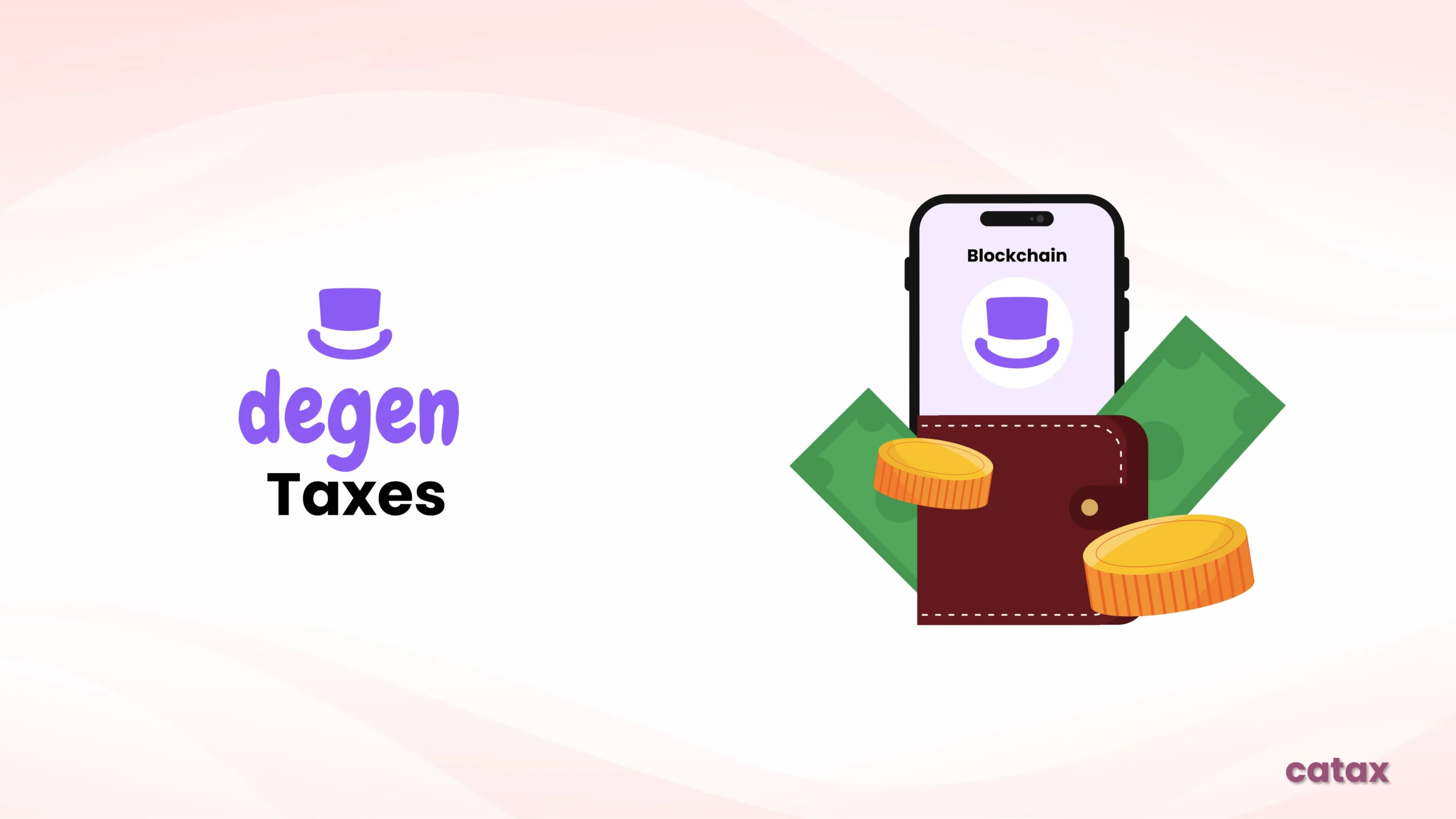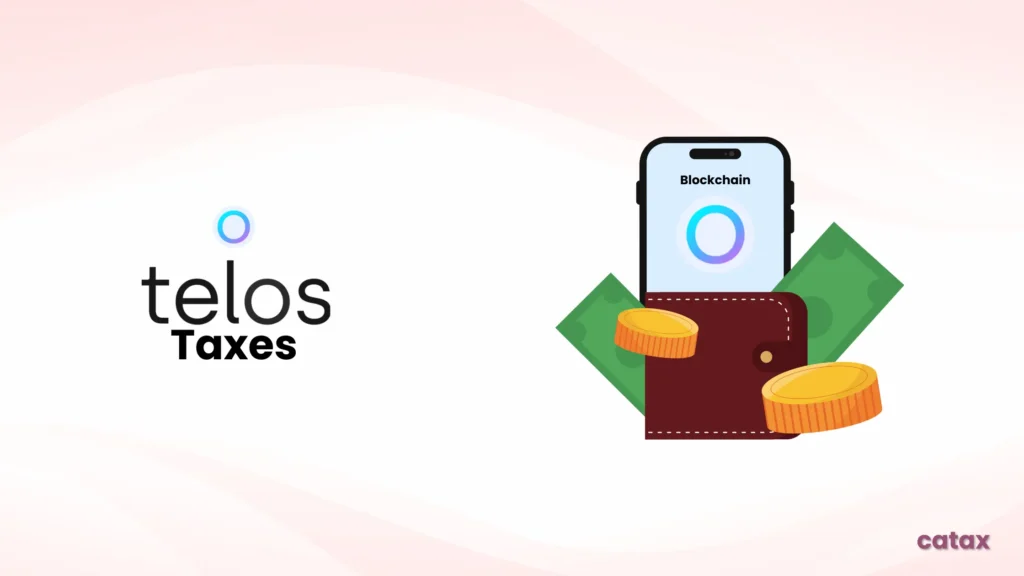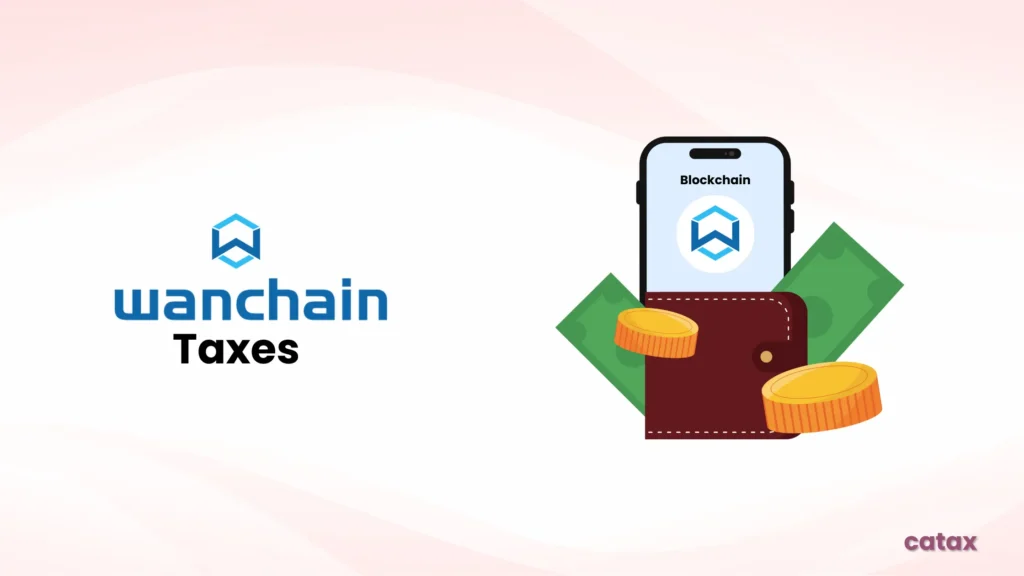Cryptocurrency tax rules vary by country, and Degen taxes transactions may be taxed differently depending on local laws. Whether you buy, sell, trade, or stake Degen, knowing how tax authorities classify these activities helps you stay compliant and avoid penalties.
This guide simplifies Degen taxation so you can manage your crypto taxes with confidence and meet your legal obligations smoothly.

- How to Connect Your Degen Wallet to Catax
- Are Degen Transactions Taxable?
- Can You Deduct Trading Fees and Other Costs?
- Other places may only allow:
- How Is Degen Taxed Based on Holding Period?
- How Is Staking Income Taxed?
- Can You Claim Degen Losses for Tax Benefits?
- How to Stay Compliant with Degen Tax Rules
How to Connect Your Degen Wallet to Catax
To easily track your Degen (DEGEN) transactions and calculate taxes, follow these simple steps to connect your wallet to Catax:
- Open your Degen wallet or use a supported block explorer (such as MetaMask, Trust Wallet, Ledger, or any compatible wallet).
- Copy your public wallet address from your Degen wallet.
On Catax:
- Log in and select your country.
- Select Chain, then search for Degen Wallet.
- Paste your public wallet address and click Connect.
Once connected, Catax will automatically track all your DEGEN transactions, making crypto tax reporting simple and hassle-free.
Calculate My Taxes ➤Are Degen Transactions Taxable?
Yes, in most countries, Degen (DEGEN) transactions are taxable. Depending on how you use DEGEN, tax authorities may classify it as a capital asset, property, or income.
When Do You Have to Pay Taxes on Degen?
You may owe taxes in these situations:
- Selling DEGEN for a profit – If you sell DEGEN for more than you paid, the gains are generally subject to capital gains tax.
- Trading DEGEN for another crypto – Swapping DEGEN for BTC, ETH, or another token may be considered a taxable event.
- Using DEGEN to make purchases – Spending DEGEN on goods or services may trigger capital gains tax if its value increased.
- Earning DEGEN from staking – DEGEN rewards from staking are often treated as income and may be taxed when received.
- Getting paid in DEGEN – If you’re compensated in DEGEN for work or services, it’s usually taxed as income based on its market value at the time.
Since tax rules vary, always check your local laws for accurate guidance on DEGEN transactions.
Can You Deduct Trading Fees and Other Costs?
Whether you can deduct DEGEN-related expenses depends on your country’s tax code.
Some jurisdictions allow deductions for:
- Trading fees when buying or selling DEGEN
- Network/transaction fees when moving DEGEN
- Security expenses like hardware wallets
Other places may only allow:
- The original purchase cost of DEGEN (cost basis), excluding other costs like fees or wallets
Review your country’s tax laws or speak with a tax professional for clarity.
How Is Degen Taxed Based on Holding Period?
Tax rates on DEGEN profits often depend on how long you’ve held your tokens:
- Short-term (less than 1 year) – Usually taxed as regular income
- Long-term (over 1 year) – May qualify for lower tax rates in some jurisdictions
- Flat-rate systems – Some countries apply a fixed tax rate, regardless of how long you’ve held DEGEN
Understanding these rules helps you plan smarter and reduce your potential tax liability.
You can also check out our Country-Specific Guide for Crypto in Your country. This guide provides insights on regulations, tax implications, and compliance measures breifly explained for each country.
How Is Staking Income Taxed?
Staking Degen can earn you passive income, but the way it’s taxed depends on where you live. Some countries tax staking rewards as soon as you receive them, while others tax only when you sell or exchange the tokens.
How Countries Tax Staking Rewards:
- Taxed as income – In many places, staking rewards are treated like regular income. This means you’re taxed when you receive DEGEN, based on its fair market value, and it’s taxed at your personal income rate.
- Taxed as capital gains – Some countries only tax staking rewards when you sell them. In that case, you’ll pay tax on the profit made at the time of sale.
Understanding how your country treats staking income is key—some may require you to pay taxes on DEGEN even if you haven’t sold it yet.
Can You Claim Degen Losses for Tax Benefits?
If a DEGEN trade doesn’t go your way, you may still benefit by reporting the loss on your taxes—depending on your local laws.
How Different Countries Handle Crypto Losses:
- Loss offsets – Some tax systems let you subtract DEGEN losses from other crypto gains, lowering your overall taxable amount.
- Loss carryforward – Didn’t make any profits this year? Some countries let you carry DEGEN losses forward to reduce future tax bills.
- Limited or no deductions – In certain countries, crypto losses can’t be deducted, meaning you won’t get any tax relief for selling at a loss.
To claim any tax benefit, always keep detailed records of your DEGEN transactions, including timestamps, values, and exchange data.
How to Stay Compliant with Degen Tax Rules
Crypto tax laws are constantly changing, and staying compliant with DEGEN taxes is essential. Here’s how:
- Know how your country classifies DEGEN – Is it taxed as capital gains, income, or business revenue?
- Check what’s deductible – Some expenses like staking rewards, trading fees, or wallet costs may qualify for deductions.
- Track every DEGEN transaction – Whether you’re buying, selling, staking, or spending, log everything.
- Use a tax tool like Catax – Catax can automatically sync and calculate your DEGEN taxes, saving you time and effort.
- Talk to a tax expert – If you’re unsure, a crypto-savvy tax advisor can help you comply with local tax laws.
By staying ahead of the rules, you can confidently manage your DEGEN taxes without stress.
Book a Free Consultation Now →

